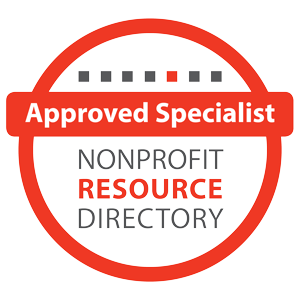Why Are Sponsors Important in Fundraising? Are They Needed?
How Important Are Sponsors for Fundraising?
The short answer? Very. When it comes to planning and executing your nonprofit’s event, the mix of sponsors can be the difference between failure, success, or wild success.
Developing those sponsors, however, isn’t simply a matter of snapping your fingers. Instead, it takes careful planning, strategic thinking, and most importantly, tending to vital relationships.
In this post, you’ll learn how to start planning your event with an eye towards sponsorships, you’ll get tips for finding sponsors, and advice on how to maintain those sponsors once they commit. But before we go too far, it’s important to understand the three different ways sponsors can contribute:
CASH DONATIONS
- These sponsors give cash you can use to underwrite event production.
IN-KIND DONATIONS
- Instead of cash donations, in-kind giving covers 100% of the cost for goods or services. Think catering, event advertising, equipment rental, etc.
ONE TO ONE DONATIONS
- A one to one sponsor will match your purchases. For example, if you spend $100 on food, advertising, etc, this sponsor would give you $100.
Now that you know the forms sponsorships can take, it’s time to start planning your event.
DEVELOPING YOUR EVENT
This is an important first step because you need to have a clear idea of your event’s goals and associated costs before you start approaching sponsors. With this information, you’ll be able to target the correct sponsors at the correct levels for the correct donation type. This all starts with calculating your event’s budget.
CREATE YOUR BUDGET
Just like any successful business or household budget, your event should cost less than it bring in. Begin by totaling all anticipated expenses, including items like facilities rental, food, publicity, and travel. Then put together all anticipated income such as admission fees, co-sponsors, or fundraising. The difference between these two numbers is your profit or loss. You now have a concrete idea of how much you’ll need to raise to make your event a success.
DEVELOP SPONSORSHIP LEVELS
Now that you’ve established a budget, you can begin creating sponsorship levels to help cover your event’s cost. Start with three to four different levels, each with their own sponsor benefits. These could include the number to tickets given to the sponsor for the event or how much exposure or marketing each level receives. But use caution! Unrestrained sponsor benefits can often nullify the original donation.
A NOTE ABOUT INFLATION
Producing an event typically gets more expensive each year, so if you’re planning a recurring event, plan on seeking increased support as the years go on. Before you choose to increase your sponsorship levels, ask yourself if the event really warrants the increase and if the dollar increase is appropriate and in line with the event. If the answer to these two questions is yes, be prepared to justify the increase to your sponsors and be okay if they want to stay at the current support level.
PREPARE YOUR EVENT COLLATERAL
The final step before you start sharing your event with potential sponsors is to give it a name and create a logo that presents well on paper. These will often be the first items a sponsor sees so it’s important these pieces are dialed in for maximum impact.
CREATE A SPONSORSHIP REQUEST LETTER
Now that your event has a budget, sponsorship levels aligned with that budget, a name, and a logo, the sponsorship search can begin. Start by writing a sponsorship request letter or an overview statement. This document must include a short description of the event that provides answers to the who, what, and why questions. Clarify your message by sharing this document as widely as possible and make sure it’s proof-read by at least two other people. You can include the sponsorship levels in this document if you wish, or you can create and include a separate sheet.
FINDING SPONSORS
So where do you find sponsors? The easiest place to begin is with groups who’ve sponsored your past events because in many ways, the hard work has already been done. But don’t just take their support for granted. Instead, approach these sponsors as if they’re valued partners in your success. Because they really are. Remember to always begin your request with thanks for any previous support. Include statistics on previous events and let your sponsor know how you intend to improve results this year.
Finding new sponsors takes much more leg work. Look first to your existing relationships. Are there opportunities that haven’t previously been explored? Pay close attention to other event sponsors but do your research before approaching them. You can also ask your board members for recommendations but be sure to ask for permission to use their name. This is arguably the most difficult part of the process, but the preparation you’ve put into planning your event from the outset will make your work that much easier.
FOCUS ON CREATING LASTING RELATIONSHIPS
At this point you’ve developed the framework for your event, found fantastic sponsors, and together produced a successful end product. Don’t make the mistake of resting on your laurels. Now is the time to start laying the groundwork for your next event by cultivating relationships with these important supporters.
STEWARDSHIP
It is just as important to honor your corporate sponsors as it is your personal donors. So honor your commitments and keep your promises and never forget to say thank you. You can hand- write it, email it, or say it with a smile and a handshake Just remember to be appreciative for the support they’ve given. If your sponsors feel valued, they’re much more likely to commit the next time you ask for help.
RELATIONSHIP BUILDING
Beyond the initial thank you, it’s equally important to build a lasting relationship with your sponsor just like you would with your personal donors. This can take many different forms.
- Like their Facebook page
- Review them on social media
- Follow their websites
- Patronize them
- Take them to coffee … just because
- Get to know them: birthday, work anniversary, etc.
If they only hear from you when you need more money, you’re not building sustainable relationships.
IT’S ALL POSSIBLE
Successfully working with sponsors is an essential part of fundraising. They can be an incredible force multiplier and provide much-needed credibility to an event. As you’ve read here, acquiring these sponsors is often a matter of careful planning well in advance of the first request. If you’d like to talk more about working with sponsors or other needs your organization might have, we’d love to hear from you.
You can call us at (360) 750-3825 or by email at patti@westbyassociates.com. We’d be happy to help.






